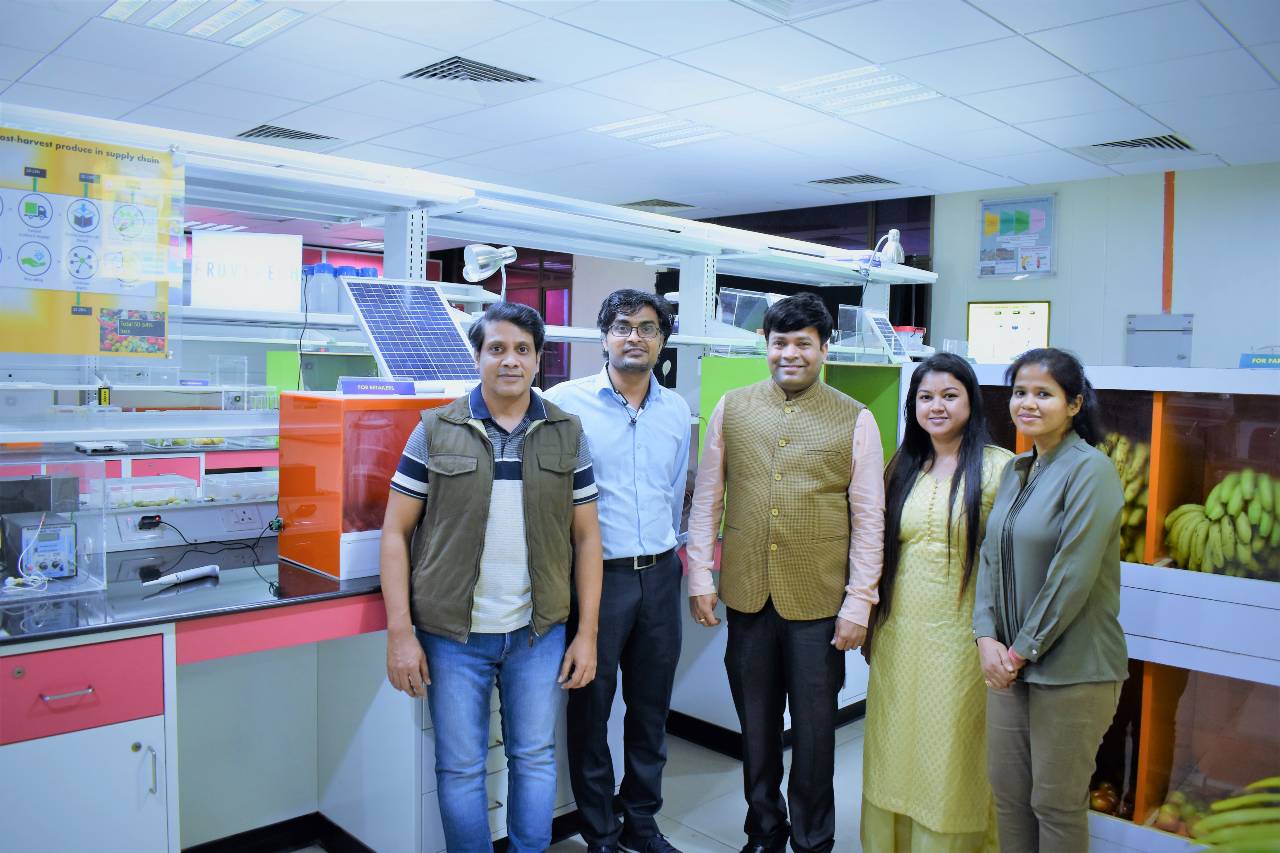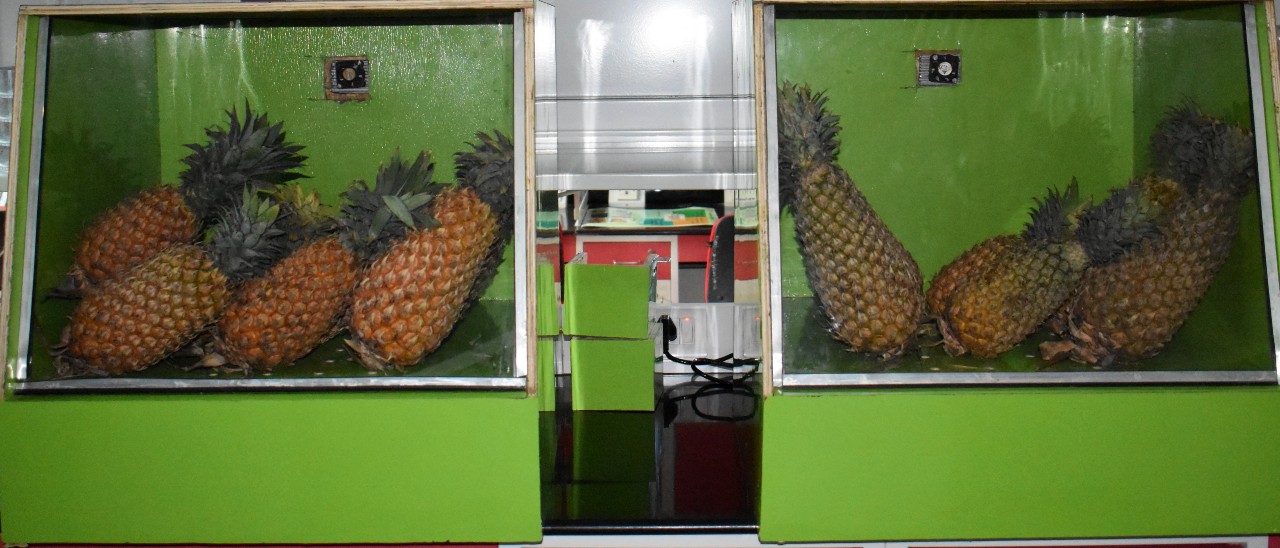In India, 30-40 per cent of perishable agricultural harvest like fruits and vegetables goes to waste every year. The wastage begins right from the harvest, to improper storage facilities, transportation and retail shops or markets. Sometimes after purchase, the agri produce can get spoilt at home before consumption. This leads to losses over thousands of crores in the agricultural industry.
A study by the International Society for Horticulture Science explains that the primary reason for this is the lack of cold storage facilities which are not accessible to all farmers.
To bridge this gap and provide farmers with a cheaper alternative, Dr Jagadis Gupta Kapungati, a scientist at the National Institute of Plant Genome Research (an autonomous institute of the Department of Biotechnology, Government of India) has come up with a device named — ‘Shelf life enhancer’.
“It is an energy-efficient and a cheaper alternative to cold storage facilities. The device is expected to reduce the post-harvest losses in storage and transportation by allowing fruits and vegetables to ripen slowly. Through research we have also identified that the device can enhance the nutrient composition in the fruits and vegetables,” says Dr Jagadis in an interview with The Better India.

Workings of The Shelf Life Enhancer
Researchers have exposed small amounts of nitric oxide to fruits and vegetables in the past. They identified that it slows down the respiration rate of the fruits and vegetables, and reduces the production of ethylene, which is the chemical produced during the ripening process.
“After continued research, I have developed a first-of-its-kind formula that can generate low amounts of nitric oxide from natural resources such as leaves. This includes mango, banana, curry leaves, lettuce among others,” claims Dr Jagadis.
In 2019, after coming across the reports about agricultural wastage in the country, he decided to create a device that could release nitric oxide in small amounts and store the produce.
Funded by the Biotechnology Industrial Research Assistance Council (BIRAC), and incubated at the FITT, Indian Institute of Technology-Delhi, the prototype of the ‘Shelf life enhancer’ was made using polyacrylic material, wood and plastic. Two chambers—one smaller than the other—were created to store the formula to produce nitric oxide and to place the fruits or vegetables. From the small chamber the nitric oxide is directed into the larger chamber in limited amounts.

“We conducted tests using bananas, mango, pineapple, chikoos, custard apples, tomatoes and other perishables. Some were placed in the shelf life enhancer and others in open-air conditions. While the ones placed outside showed the growth of bacteria and fungus within a few days, the ones on the shelf were fresh for at least a week. The tomatoes did not ripen for three days, banana and mango stayed fresh for seven days and pineapple for 10 days,” says Dr Jagadis, adding that this is owing to nitric oxide slowing down the release of ethylene.
Further, the fruits and vegetables were tested to check for any change in the nutritional composition. He claims, “The results showed that after exposure to nitric oxide, there was an increase in vitamin, mineral and iron content.”
Dr Jagadis even took into consideration the unreliable power supply across several areas in the country.
“Currently, the device is powered by electricity, however in rural areas, there may be power cuts. So I have also created a design with solar panels to power the device. The larger chambers are fitted with thermoelectric coolers to maintain a temperature between 25 to 27° Celsius. This ensures that the products can be kept cool until it is transported to the markets,” says Dr Jagadis, adding that the device will be priced less than Rs 2,000.
On-ground trials
In 2020, the device and the methodology were submitted for various patents, including the European and USA patents. The project has also received a grant from Sri Padmavathi Venkateswara Foundation, Andhra Pradesh, to conduct on-ground trials for farmers to test the devices.
Jagadis also launched a startup named Fruvetech Pvt Ltd through which these devices will be manufactured and licensed.
“The shelf life enhancers will be made in different sizes, going up to 20 litres or more. It will also be made using recycled plastic to further reduce manufacturing costs. However, the quantity and material can be modified according to consumer requirements,” says Dr Jagadis.
Edited by Yoshita Rao
No comments:
Post a Comment